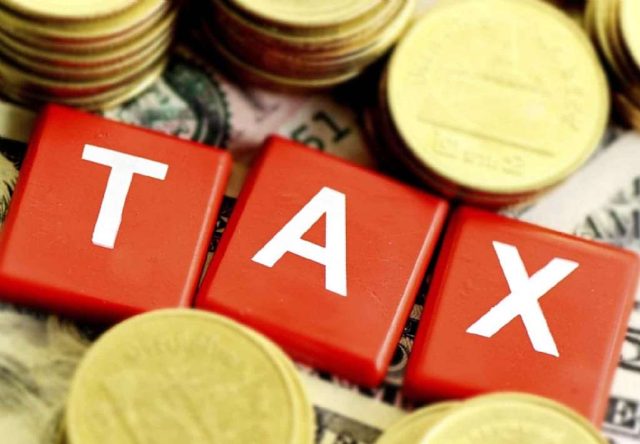Tax Consultant, Dr. Abdallah Ali Nakyea, says government’s move to introduce new taxes as part of measures to get an International Monetary Fund (IMF) board approval for a $3 billion bailout is deepening the tax net instead of widening it.
According to him, the government’s new tax measures are merely entrenching Ghana’s 80:20 tax paradox where 80% of tax payers contribute 20% of tax revenue while 20% of tax payers contribute 80% of tax revenue.
He said the new tax measures will merely further burden the 20% tax complaint tax payers rather than rope in the 80% non-compliant population.
He has warned that should the tax measures be passed by parliament, the government could essentially be contributing to business collapses and a spike in unemployment in the country.
Explaining his point on JoyNews’ PM Express Business Edition, he said, “The existing tax payers we know who are complying, if you increase taxes or you introduce taxes, the same segment of people continue to carry that burden because we have a paradox in the revenue mobilisation sector in Ghana where we say 80:20 paradox. 80% of tax payers bring in only 20% of revenue and 20% of tax payers bring in 80% of tax revenue.
“Who are these 20%? The multinationals, the banks, financial sector, these are the same people we’ve saddled with national reconstruction levy, we’ve saddled them with financial sector recovery levy and now we’re talking about growth and sustainability levy. The 80% we all keep saying, the informal sector is between 70 and 80%, what is their contribution to revenue? 20%. So if we’re even able to nurture the 80% non-compliant to come up to 60% you can imagine the revenue we can make.”
He also called on the government to reverse some tax incentives and block illicit flows of cash from the public purse.
“You are granting incentives to certain sectors that they shouldn’t pay tax, is it time to ask them to come and help you contribute? If it is the 25 they cannot pay, can you introduce – you were exempt, can you bring in 5%, let’s all rebuild the country? Can you bring in 10%? That is one area.
“The second one is trying to look at what we refer to as illicit financial flows that is complete non-disclosure. If you take the Ghana Integrity Initiative and CHRAJ reports, it will tell you that Ghana is losing $3 billion dollars annually from corruption. Corruption, $3 billion, is that not exactly the amount we’re looking from IMF.
“If you take ACEP report, it tells you we’re losing $2 billion from illegal mining. If you add the two, we’re at $5 billion. We’ve not come to under invoicing and other things at the port. So do you need IMF/ we’re talking about $5 billion a year now, and you’re going to get $1 billion a year from IMF,” he said.
To close the tax gap and rope in much of the informal sector, Dr. Ali Nakyea has suggested that the second schedule to the Income Tax Act 2015 (Act 896) be implemented.
“Because it brings up the idea that why can’t we allow the informal sector to give say the 2% 3% of their turnover like the growth and stablization levy is saying and that is your total tax for VAT and income tax at least you are also contributing something then we could have opened the net, we would have widened the net,” he said.
DISCLAIMER: The Views, Comments, Opinions, Contributions and Statements made by Readers and Contributors on this platform do not necessarily represent the views or policy of Multimedia Group Limited.






![Business tycoon in Novrongo to bury late father in a car [Video]](https://ghananewss.com/storage/2023/05/business-tycoon-300x194.jpeg)











